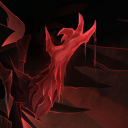Leaderboard
Popular Content
Showing content with the highest reputation on 01/19/2022 in all areas
-
Some dipshit in a kevlar suit once said: "With great power comes great responsibility." TLDR at the bottom. Synthetics, but especially the AI for the purposes of this discussion, walk a thin line when it comes to validhunting. As per rule 8, since they are not security (with few exceptions like Combat module cyborgs), they should not be seeking to stop antagonists at all. Frequently, however, you will see AI play a far more active role in the stations security (bolting doors to stop someone running, calling out crimes or contraband), and typically I believe this oversteps their laws and their boundaries. Obviously, this will depend a lot on the context and the laws, but I'll try and explain why I think AI players are way overdoing it. Firstly, let's talk about everyone's least favorite: crewsimov. It's exploitable, it's annoying, it leads to repetitive tasks, and it's here to stay. Here's a refresher on what the lawset says, because I'll be referencing it. Crewsimov. Now, let's explore why an AI might, for example, bolt a maintenance door that someone is running to, in an attempt to escape from security. Because of law 1: The person has demonstrated harm towards the crew (shooting lasers, ballistics at people), and letting them go would allow them to do more harm. Notably, even if they ask you to unbolt the door, you may not follow their orders, since doing so would violate law 1. Because of law 2: Security asked you to. Notably, in this case, if they were to ask you to unbolt the door, under advanced rules, you may do so if their rank is higher than that of the Security member that asked you to bolt it. So, there's two reasons. If there is a criminal running from security, and they haven't used lethal force, and security hasn't asked you to prevent their escape, you shouldn't bolt anything. Should you? Well, this is muddied by the fact that AI players are supposed to have "common sense," until they aren't. They are supposed to be reasonably loyalist to NT, until they aren't. I'll quote a line from the advanced rules here. Other than the obvious fact that sense isn't common, AI players playing like humans isn't necessarily bad (they're humans, after all), but playing like the embodiment of Space Law not only is super unfun for antagonists (vis-a-vis getting game-ended by a bolted door 20 minutes into your traitor role), but also doesn't really make any sense with regards to how an AI would act. Indeed, there is no reason an AI should care about SOP or space law, barring obvious things like letting security execute that Unknown that they claim is the powered vampire a few seconds before they're revealed to be, yes, the powered vampire. Or not letting a prisoner out of their cell just because they asked politely. That NNO that just executed the HOP without terminating their record? Not crew. Really, he's an armed hostile. This rule is probably designed to stop AIs from rules lawyering every single set of laws their given to screw over either the crew or the antag. I think it's having the opposite effect, where AIs disregard their laws in favor of "common sense," which usually means getting the epic redtext on that assistant because, I dunno. He's probably going to do something bad in the future. He's valid, you know? This applies not only to bolting doors, but to telling Security that HOP just gave themselves all access, or that cargo tech is suspiciously holding their PDA in the warehouse. These things don't cause harm, and let's face it: no one asked. Other lawsets may give reason to report crimes though, so let's have a look. NT: Default Law one for NT default states that you must protect the station and it's assets. Amusingly, from NT's point of view, everyone with a contract is an asset of the corporation, and thus the station, anyway. I'll be ignoring that (and you should too) for the sake of law 1 not contradicting itself, but it's a funny tidbit. NT: Default is awkwardly written, considering the above paragraph, and also that law 2 is basically innate to all AIs via the advanced rules anyway, but it is a very safe lawset that is very hard to lawyer, exploit, or manipulate nonetheless. You should bolt per law 2 doors if a person with a high enough rank asks you to, and disregard if someone with higher rank than them asks you to. Law three is vague in terms of what the difference between "preserving safety" and "harm" is, but we can reasonably assume that we should do whatever provides the highest well-being to staff and stop people from lowering the well-being of others. How very moralistic. I initially tried to rewrite NT: Default, removing the superfluous text and bringing it to the barest scraps to see if theres any possibly justification for validhunting with it, but I realized when I was finished that it's just crewsimov again. Moving on. Corporate. This lawset is by far the validhunty-est. It also makes the least sense of the three starting modules, because Law 4 is needlessly long and is placed at the bottom of the list even though it is the most important law. This confuses newer players, but that's a topic (really, its a novella at this point) for another day. Since "revenue" is never defined, that is left to common sense, and common sense indicates it is utterly worthless because nobody wants to play the bar's slot machines over and over to actually maximize revenue. Like crewsimov, for the purposes of this discussion we only care about two laws: #2 and #3. The former is easy: if the person is damaging the station in some way by sabotaging power, atmospherics, or otherwise creating superfluous holes in the hull, they are to be stopped. Law 3 is ridiculous, and allows any disruption (read: stopping people from doing their job) or hindrance (read: literally anything) to be quelled with the necessary reaction, provided that reaction doesn't create more expenses than doing nothing. Bolting a door causes zero expenses. Telling security about that shady Unknown in dorms incurs expenses only in so far as wasting Security's time. With that being said, you're within your laws to play Corporate like it's Robocop. So that's it. That's how it all concludes. Crewsimov and NT: Default are just the same lawset, and Corporate is filled with so many holes that you can do whatever you'd like. Well? No, not at all. Bolting doors? Calling out non-lethal, crew-manifest antagonists? Bear in mind that these are things that you can do under corporate, and you'll have laws that can back you up, but per rule 8 on validhunting, these are not things you should do, provided you aren't egregiously disregarding Security's wishes. TLDR; (and read this, even if you read everything else,) There is no good excuse for validhunting on two out of the three lawsets. Plus, at the end of the day, it's more fun to simply let antagonists be. The problem of AI validhunting and 'doing too much' is not a problem this thread is going to fix, but if I stop one person from control clicking another door and turning the round into extended because you feel like if you don't, you're not robust, this writeup will have been worth it. The problem wasn't just secborgs, or a few bad apples, the problem is synthetic's mindset. Removing the control-click shortcut would be a good start, though.1 point
-
1 point
-
1 point
-
1 point
-
Wanted to try a couple of different perspectives. Basically I wanted to have one sketch of Cecilia at a high angle and another from a low angle. My idea was to make it look like she was being reflected in something like a pond or a window, but I'm not quite sure I got the angle right for that. It turns out you can gank one of the deadliest megafauna in the game by just swarming it with killer tomatoes. I admit I've sort of shelved Kirsten as a character (as it so happens, she shares a name with a server regular who's been around for longer so I prefer to avoid confusion), though I still like her design. Edit: Since this, I've elected to compromise with a name change. During a particularly slow round, the librarian swapped out the 'Space Law' book in the brig lobby with a satirically awful Star Wars fanfiction that had been retitled as 'Space Law'. Again, it was a very dull shift up to that point so everyone in security had a good laugh about it. Slaughterdemon. Laughterdemon. I sort of messed up with the blood splash pattern. Initially I'd drawn the bright-red puddle, but then added the darker tone which I thought looked a bit more convincingly like blood splatters, but I couldn't be bothered to blend the two together. Something interesting I've noticed is that antag roles and security both manage to feel like an uphill battle to the person playing them. I think it's because as an antag, the player only needs to consider success or failure in terms of their own individual experience while players in security tend to view 'success' and 'failure' as something that's measured across the entire department and shift. And some miscellaneous tabletop stuff:1 point
-
I've never tried 4th edition, so I can't provide any sort of expert opinion there. That said, I'd say SR 5e's rules are written and organized poorly in the book, but make sense when they're put into practice. Between D&D and SR, it felt like Shadowrun's rules and character creation were thought-through a little better than D&D. One of my pet peeves with D&D 5e is that the races all follow Star Trek logic, in which the full gamut of dwarves, elves, etc. can be described as, "Just like humans, except considerably better in numerous ways with no real tradeoffs compared to humans" whereas Shadowrun's metatype system balances typically 'superior-than-human' fantasy species by forcing players to compromise on starting resources or attributes in order to select a fantasy species. There's also things like Shadowrun's authors have put a lot more time and consideration into how magic has influenced the development of their world from a lore perspective, while D&D just has world-breaking magic lying around that apparently nobody really thinks about. That said, it took me about a solid year of deciphering SR5e's rulebook before I finally understood enough to properly GM it, while in comparison I had D&D 5e figured out in about a week, so I might just be falling into a Sunken Cost fallacy. I hope everyone's staying safe and well-supplied these days. I actually ran out of sketch paper due to social isolation--while that was disappointing at first, I think you'll agree it was a net positive. You'll see what I mean. Just a practice picture. By this point I don't feel like I'm uploading a 'full' set of pictures unless at least one of them features Cecilia looking annoyed. Swarmers are annoying. Hostile wildlife. As I mentioned earlier, running out of paper to sketch on prompted me to dust off a tablet I'd left neglected for some time. I'd given tablet sketching a try quite a few years ago but I think I let myself get discouraged from it too easily. This first sheet just includes various SS13-related doodles that I made to get used to the tablet. A picture of Cecilia I made using ArtRage, a program intended to emulate markers and paints. I felt like I had to fight the software every step of the way, though I'm impressed by how the image looks convincingly like a crappy paint-and-markers art on canvas rather than something made using a program. "Does SoP say I can't use my desk as a footrest? No. No it doesn't." I give IAA a try whenever I want to play, but don't feel like I'm in the right headspace to try a 'proper' HoS round. I think the reason a lot of players have difficulty with IAA is that they approach it with no prior experience in security, and see their relationship to the security department as one based on conflict rather than cooperation. To get security to do anything as IAA, you need to have mutual respect. To have security respect your opinion as IAA, you need to know when it's practical to emphasize SoP and when it's not. The job is much more about earning security's trust that you've got common ground with them rather than trying to get officers fired for incompetence or reduce prison timers. Epic fight music of your choice goes here When the Nuke Ops get whittled down to their last squad member, don't get cocky. There's usually plenty of good reasons why that last man standing outlived all their squadmates, such as being an unstunnable sith lord with a shielded hardsuit who's been on a meth-fueled rampage since reaching the station. Something about the position of the Nukie's right arm is bothering me. I might have to fix that later. Command roles are not suitable for players with an inferiority complex or an easily-bruised sense of pride. There are plenty of AI players who seem to relish making new Command staff go utterly berserk over relatively minor slights or small acts of insubordination. Spark 5.5 has made it into an art form. This was meant to help setup the 'crazy captain' exchange above, though I felt having the context-less version there helped set up the joke better than leading with a sketch that 'gave away' the joke so to speak. I wanted to add dialogue here, but I think it would've taken away from the picture: this is the "I demand to speak to your manager" face, the "I'll get what I want if I just get angry enough" face, adding text would really just be reduntant. Cecilia's "I'm listening respectfully, but I still think your opinion is dumb" face. Like I said, I think giving the tablet a try was a net positive overall. Don't get me wrong, I was happy where I was before, but this feels like a whole new level.1 point
-
PSA 2: Weapons on Patrol The annoying thing is that the Sec players who need this advice the most are the ones least likely to listen to this advice: Running around with your weapons unholstered makes you considerably more vulnerable and liable to be attacked than if you're patrolling with holstered weapons. "But Machofish, having my weapon holstered just means I have to click more buttons when I see a threat! That split-second could be a life-or-death matter!" And yes, that is a strong argument. Unfortunately, SS13 logic causes it to be false. Wins often go to wheoever has the drop on their opponent, and an officer with their weapons out without knowing specifically who they're trying to shoot/baton means that anyone hoping to take the officer down gets that much more bang for their buck with their opening move, since something as simple as an un-telegraphed melee disarm can cause an officer to lose their stun weapons and usually their life as a result. From personal experience, most of the crimes stopped by security occur when security responds to a third-party being attacked, not by an officer being attacked on their own and somehow fighting back: If you identify a threat, it's easy enough to backpedal while drawing your weapon of choice, then move in. Alternatively, if you're responding to a distress call, only draw your weapon only once you get close to a department or station area that the distress call came from, to minimize the chance of losing your gear to butterfingers before you even arrive at the scene. And now for something completely different: I'd explain more, but I genuinely don't remember the context. Perhaps that's for the best. And some more sketches from GM'ing Shadowrun: Trying to come up with thoughtful image descriptions while sleep-deprived at 1:00am on a Friday night is difficult, so I'll probably be editing the caption text continuously over the next day or so.1 point









